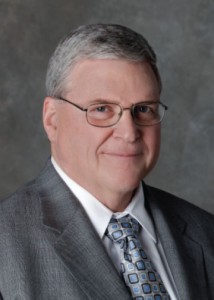PRO ‘Dark money’ is a euphemism for free speech, like it or not
In the class I taught at Michigan State University on “issue management,” I stressed the need to control the narrative by using the right words, particularly the shorthand term the media uses to label the issue.
For example, use “torture” rather that “enhanced interrogation techniques.” Or “voter suppression” vs. “ballot integrity.”
A powerful label used by those who seek to limit certain political speech is “dark money,” instead of “constitutionally protected free speech.”
Rich Robinson, of the Michigan Campaign Finance Network, is a master propagandist (in the best sense of the term), and a committed voice for stronger government regulation of political speech. He represents a long line of advocates who, in my view, promote an interest undermining the First Amendment: valuing formal compliance with government-mandated disclosure over the constitutional rights of free speech.
My career has involved significant efforts to defend political speech. Forty-nine years ago, I was placed on “strict disciplinary probation” by Michigan State University for joining with other political groups to bring a speaker for the Student Nonviolent Coordinating Committee on campus without a permit.
Many people who may have supported that action, opposed my efforts in the U.S. Supreme Court to ensure that when the First Amendment says “Congress shall make no law…abridging the freedom of speech, or of the press; or the right of the people peaceably to assemble” it applies to all, including individuals, voluntary associations, unions and corporations.
And in the past four years I have served as Treasurer of the Michigan Advocacy Trust, a 501(c)(4) organization engaged in non-election, but politically related, “issue advocacy.” The Michigan Campaign Finance Network calls the Michigan Advocacy Trust a dark-money fund. Bridge Magazine’s Truth Squad even found one of our communications to be Number 2 of the “10 worst ads” during the 2014 election season.
The debate over “dark money” political speech raises the issue of the importance of a critical aspect of our democratic system – the role of anonymous communication to protect free speech and association. In a 700-word column it is difficult to present an adequate description, much less a defense, of anonymous political speech. But consider the following:
The First Amendment vigorously protects both free speech and association, including the privacy of association membership. This freedom stems from the fundamental principle that people are capable of self-governance, including an individual’s ability to receive information, process it and make subsequent decisions based on his or her own individual ability and interest.
Laws making politics a lawyer-dominated regulated industry in the U.S. and Michigan have already significantly reduced unfettered political speech. For example, the U.S. Supreme Court found in Citizens United v. FEC, the “FEC has adopted 568 pages of regulations, 1,278 pages of explanations and justifications for those regulations, and 1,771 advisory opinions since 1975.” Such overbroad and onerous disclosure requirements prevent many grassroots groups from participating vigorously in national and local debate. And they encourage groups to avoid oppressive government regulation, through such means as dark money, techniques always labeled by the MCFN as “loopholes.”
The U.S. Constitution and the First Amendment might not exist but for the power of the Federalist Papers, all published anonymously. The Federalist author’s anonymity was meant to avoid prejudice and preclude obfuscation of the message. These interests are still compelling justifications for speaking anonymously.
Hindering retaliation from those with government power has been and is an important component of free speech and association. Unfortunately, our nation’s history is replete with examples where the government sought to suppress speech and organizations opposed by the dominant powers. The corruption of the IRS in seeking to silence conservative Tea Party voices is just a recent example. Here in Michigan, we have the example of the State Bar of Michigan, a government agency, seeking special rules to limit anonymous voices in judicial elections. Historically, one theme remains constant: no one enjoys being criticized and, when given the opportunity, those in power will quell dissent.
Many people forget that campaign finance laws criminalize violations of political speech restrictions. Especially where the dividing line between legal speech or political activity and criminal conduct is unclear, there is an obviously a chilling effect.
“Dark money” serves a valuable role in protecting our democratic freedoms and must be defended.
CON We live in the Ground Zero of dark money. Does that bother anyone?
See what new members are saying about why they donated to Bridge Michigan:
- “In order for this information to be accurate and unbiased it must be underwritten by its readers, not by special interests.” - Larry S.
- “Not many other media sources report on the topics Bridge does.” - Susan B.
- “Your journalism is outstanding and rare these days.” - Mark S.
If you want to ensure the future of nonpartisan, nonprofit Michigan journalism, please become a member today. You, too, will be asked why you donated and maybe we'll feature your quote next time!


 Richard D. McLellan is a Lansing lawyer and longtime political operative in state-government circles. He is a member of Bridge’s advisory committee.
Richard D. McLellan is a Lansing lawyer and longtime political operative in state-government circles. He is a member of Bridge’s advisory committee.